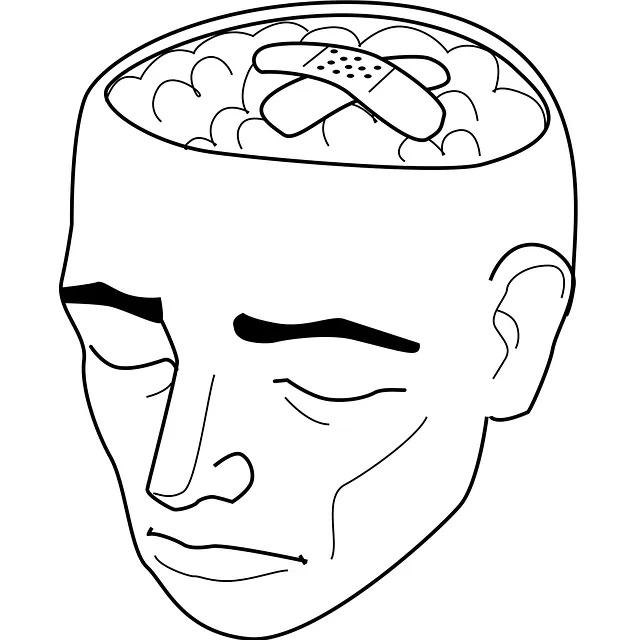The stigma around mental illness prevents many from accessing help from Denver Kaiser Permanente mental health providers. This stems from societal perceptions and past negative experiences, causing individuals to hide symptoms and avoid professional assistance. Denver Kaiser Permanente is tackling this issue through dual strategies: comprehensive training for staff to offer sensitive care and integrating mood management techniques into all services. They also raise awareness, dispel myths, and normalize conversations about mental health through educational initiatives and community outreach, empowering early intervention and fostering empathy.
Mental illness stigma remains a significant barrier to seeking help, perpetuating isolation and hindering recovery. This article delves into strategies aimed at reducing this societal scourge, focusing on the innovative approaches implemented by Denver Kaiser Permanente’s mental health providers. We explore “Understanding Stigma: Barriers to Seeking Help” and present “Strategies for Effective Stigma Reduction in Mental Health Care,” offering insights that could revolutionize how we support individuals navigating their mental health journeys.
- Understanding Stigma: Barriers to Seeking Help
- Denver Kaiser Permanente's Approach to Reduction
- Strategies for Effective Stigma Reduction in Mental Health Care
Understanding Stigma: Barriers to Seeking Help

Stigma surrounding mental illness acts as a significant barrier to individuals seeking help and support from Denver Kaiser Permanente mental health providers. Often, people struggling with their mental wellbeing feel ashamed or fear judgment, leading them to conceal their symptoms and avoid professional assistance. This internalized stigma can stem from societal perceptions or past negative experiences, causing individuals to believe they are weak or that their issues are not legitimate. Overcoming this hurdle requires raising awareness about the importance of mental health and normalizing conversations around it.
Educational initiatives focusing on self-care routine development for better mental health and risk management planning for mental health professionals can play a crucial role in stigma reduction. By promoting self-care practices, individuals learn to recognize when they need support and take proactive steps toward seeking help without fear of repercussions. Understanding that seeking professional assistance is a sign of strength and self-preservation is essential in breaking down the barriers that stigma erects.
Denver Kaiser Permanente's Approach to Reduction

Denver Kaiser Permanente has taken a proactive approach to mental illness stigma reduction, focusing on both internal and external initiatives. The organization prioritizes educating its own mental health providers through comprehensive Healthcare Provider Cultural Competency Training. This training equips staff with the knowledge and skills needed to offer sensitive, effective care to individuals from diverse backgrounds, thereby fostering an environment of trust and understanding.
Moreover, Denver Kaiser Permanente actively promotes emotional well-being across all its services. They implement Mood Management techniques in treatment plans, ensuring that mental health support is integrated into everyday healthcare practices. By combining these efforts, the organization aims to break down barriers and encourage open conversations about mental health, ultimately reducing the stigma surrounding these issues within their community.
Strategies for Effective Stigma Reduction in Mental Health Care

Mental health care professionals play a pivotal role in reducing stigma surrounding mental illness. Denver Kaiser Permanente mental health providers leverage educational initiatives to foster mental health awareness and dispel myths. By normalizing conversations about emotional regulation and offering accessible trauma support services, they create safe spaces for individuals to seek help without fear of judgment.
These efforts extend beyond individual interactions, encompassing community outreach programs that highlight the humanizing stories of those living with mental illness. Such approaches not only challenge societal perceptions but also encourage early intervention and promote a culture of empathy and understanding. Through these comprehensive strategies, Denver Kaiser Permanente is leading the way in breaking down barriers to care.
Mental illness stigma reduction is a multifaceted endeavor, with understanding and addressing barriers to seeking help being crucial. Organizations like Denver Kaiser Permanente are leading the way in combating this issue through innovative approaches that prioritize education, empathy, and accessibility. By employing strategies such as training mental health providers to be more empathetic and inclusive, along with community outreach programs, Denver Kaiser Permanente is fostering an environment where individuals feel comfortable discussing their mental health concerns openly. These efforts not only enhance patient care but also contribute to a broader culture shift, making mental health support more inclusive and less stigmatized.





